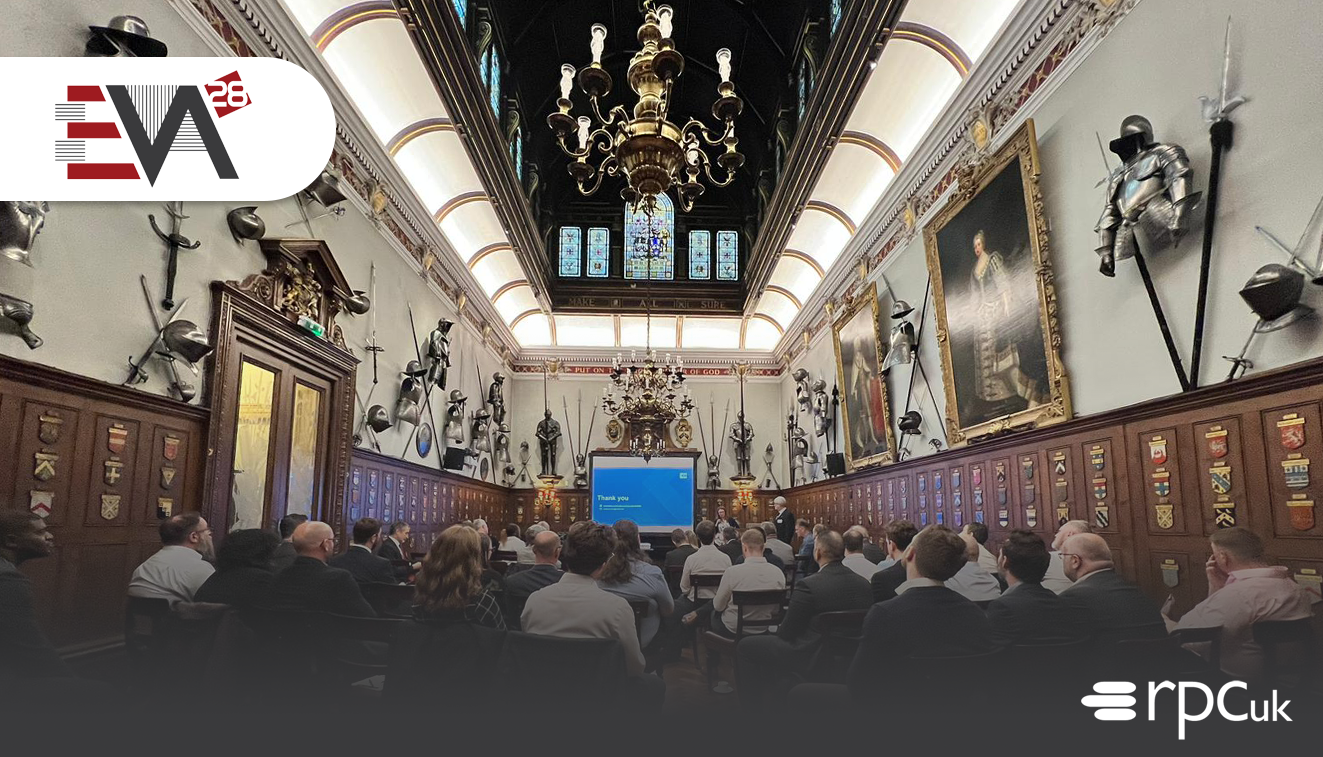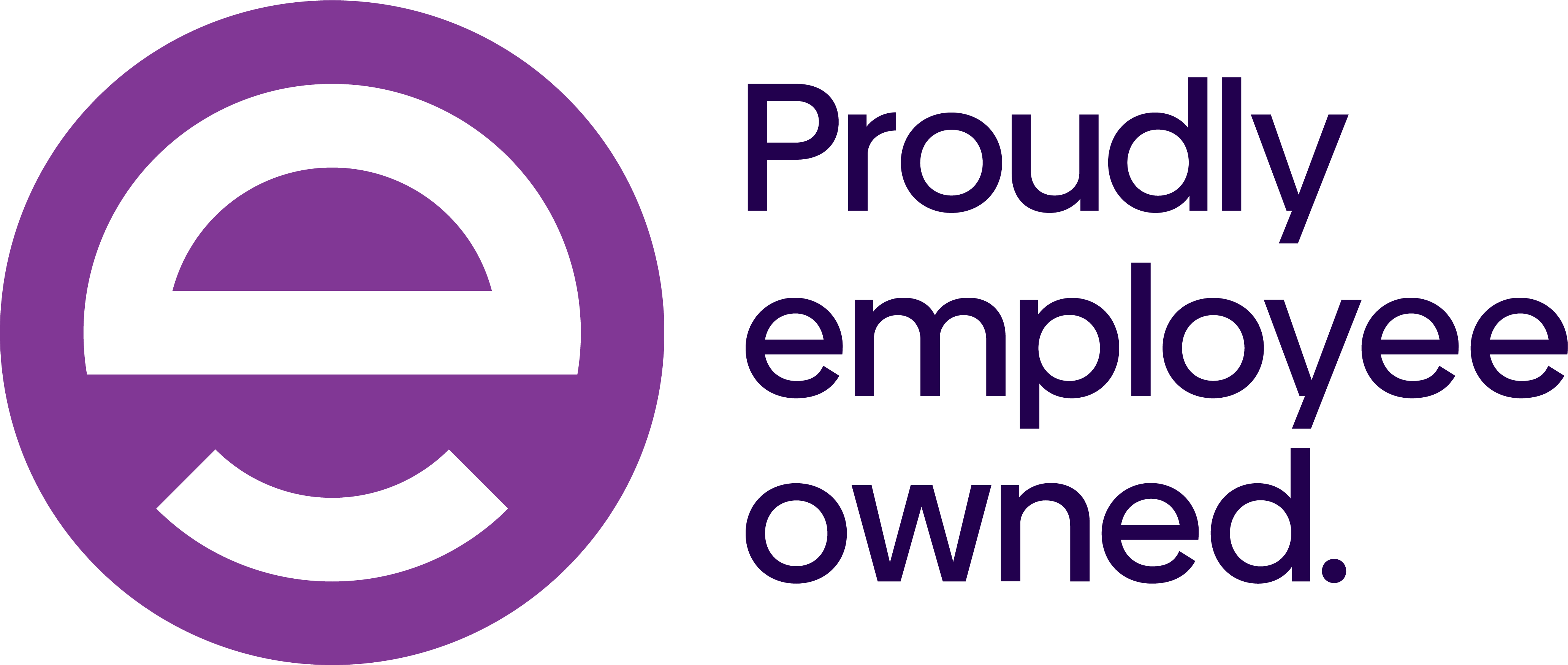EVA28 – For me, it was all about the people

If you’re looking for a project controls event that’s a bit different – engaging, insightful and in a Hogwartian setting – then Steve Wake’s EVA conferences are the ones not to miss. RPC was delighted to support the latest, EVA28, with its theme of Bridging the Knowing–Doing Gap with the Controls to Take Back Control.
In the social media chatter running up to EVA28 in May, project controls guru Chirag Shah described it as ‘A Hollywood celebrity A list of project controls speakers’ and it’s true that Steve has an enviable black book of the great and the good in the industry, all keen to take the opportunity of speaking at EVA. ‘If you’re looking to learn, network and meet with the movers and shakers in our sector,’ advised Chirag, ‘do not miss this event’.
It's this reliably high calibre of speakers – and delegates – that keeps RPC coming back time after time. ‘The EVA conference is one of my favourite events,’ says RPC Technical Director, Dave Hurren. ‘It’s great to spend the day with leaders in the Project Controls Community, a very rare event indeed, with fantastic presentations, which were both informative and thought provoking.’ Unlike so many events where the ‘Any questions?’ is met by a deafening silence, the audience at EVA is both interested and interesting, posing insightful queries, pertinent observations and sometimes thought-provoking challenges after each presentation. Here is an audience that has really been listening!
“The EVA conference is one of my favourite events” Dave Hurren, RPC
There was a clear and unintentional theme running through all the presentations of the day and that was ‘People’: understanding that a process-driven culture, where every day looks the same as the one before, where goals and how to get there are clear and prescriptive, does not take account of the people and the behaviours, cultures and cognitive assumptions of those people who are the ones who will be actually making the project happen. And that is where projects fall foul of failure.
Motivational speaker, Eddie Obeng, got the day off to a high-energy start with his fast-paced presentation inspiring us all to challenge our assumptions and be prepared to adapt. ‘A caterpillar can’t teach a butterfly to fly,’ he pointed out: we should manage our projects and particularly risk by listening to the people who will be involved and affected.
“A caterpillar can’t teach a butterfly to fly” Eddie Obeng
Human behaviour, again, was key to Simon Taylor’s call to Raise the Bar on Project Controls. How can we address the wasted resources and unrealised benefits of the estimated 65% of projects that ‘fail’ each year? Be part of the change, challenge the culture of hiding bad news until it’s too late – that Watermelon Culture: green on the outside and red on the inside – encourage creative thinking, human thinking, and solutions, not solutions based on ‘how it’s always been done’ or solutions generated by AI, which of course, can only interrogate the past.
By paying more attention to culture, soft skills, ethics and behaviour alongside traditionally valued knowledge, skills and experience, we can develop more rounded competencies to plug the skills gap that the World Economic Forum Future of Jobs Survey (2023) cites as the greatest barrier to business transformation.
But is control a flawed concept from the start? asked Joseph Lee. ‘Stay in control by starting in control!’ he titled his presentation, but is this ever really possible? ‘If you want to make God laugh,’ he paraphrased Woody Allen, ‘show him your plans (or schedules, or risk registers or best of all your cost estimates).’ Is there any room for humans, with all their foibles, faults and feelings, in the Projaverse? Joe challenged the hereditary bias towards absolutes, built on generations of ‘Male, Pale and Stale’ leaders and managers, with the idea that we should focus less on measuring what can be measured and instead seek to manage the important and unmeasurable – the human element of the controls equation.
“If you want to make God laugh, show him your plans” Woody Allen (and Joseph Lee)
The theme continued with Maddy Sears’ eye-opening expose on the inherent lack of diversity within so many accepted business models and studies. Her instruction not to be too ‘WEIRD’ was a reflection on the Western, Educated, Industrialised, Rich and Democratic populations that form just 12% of the world’s people, but the overwhelming majority of the studies and research groups that accepted ‘norms’ are based on. When planning a project, basing schedules and expectations on these assumptions fails to address the impact of culture, society and the actual life experiences and thought processes of the diverse population who might be working on your project or benefiting from the finished product. In contrast, understanding the impact of culture and society on individuals will help us all to navigate business change and achieve more successful outcomes.
And so the day progressed, with a fascinating insight from Jemma Dunne into the work of the National Audit Office in challenging ‘optimistic reporting’ and a ‘good news’ culture in favour of creating an environment of constructive challenge to encourage better wellbeing, more intelligently managed programme resets, when required, and ultimately more efficient projects, with stronger internal and external relationships and better outcomes for all.
RPC clients, MoD DE&S looked back on their journey from using disparate manual systems to the implementation of a new and more digital approach to data management, now with a forward-looking business narrative, common approaches that encourage and enable people mobility and sharing of best practice and a step change in data improvement that informs better decisions across the business. Key to the success of the project, and the overwhelmingly positive acceptance of the process changes, was in the management of the transformation. The ‘Big Bang’ approach to the implementation could have led to fear and resistance, but by understanding the needs and culture of the organisation, this was positioned as DE&S doing this to themselves, not a process change being forced by an external agency. This feeling of team and all pulling together – yet again, a ‘People’ approach – really made a difference to the way the changes were adopted.
“If you know where you’re going, you’re more likely to get there” Peder Berg
After lunch were the self-styled ‘Exotics’ of the day. A Norwegian success story borne out of tragedy and poor performance from the Norwegian police. In the wake of a terror attack, the country instigated a major project to create a dedicated Police training base and the design-to-cost approach they used was a shining example of collaboration, optimised planning and project success. People, culture and partnerships were key, continuing the theme of the day.
Ian Heptinstall’s description of the Critical Chain Method showed how managing workflow behaviours can make a dramatic difference to time and cost on projects. The synergies between the behaviour of people on a project and the data reported reveal how multi-tasking is not as efficient as you might think and how limiting work in progress can actually lead to greater productivity. ‘Stop starting and start finishing’ should be the message on all our desktops!
Rounding off the business presentations for the day was Mark Robinson, exploring the Airbus drive towards Net Zero, an ambitious target reduction in its industrial emissions and an equally ambitious aim to bring a zero emission aircraft to the market by 2035. Big targets, big ambitions, but just like eating the proverbial elephant, the way to success is through the individual, with small teams, all engaged in small changes that will build into something big.
“Stop starting and start finishing” Ian Heptinstall
EVA wouldn’t be EVA if it didn’t come with a sprinkling of something a bit different, and each presenter throughout the day was rewarded with their very own poetic tribute by Poet in Residence, Paul Lyalls and the poetic team efforts of the delegates were brilliantly set to music by John Hegley to close the event.
RPC’s Chris Woodbridge described the day as ‘Another incredibly entertaining and educational day hosted by Steve Wake. Once again there was a an A List line up of speakers – ideal for those looking to learn, network and meet with key professionals in our sector and I enjoyed listening to Iain and Frank from the MoD discussing their implementation of Earned Value utilising Oracle Unifier.’
The people in the room make all the difference, as attendee, Richard Fisher from Rolls-Royce commented, and it’s this that sets EVA apart from the competition. In fact, there really is no competition. ‘I found the event highly informative and all the speakers 1st class (I still want to know what Eddie Obeng has for Breakfast!),’ Richard says.‘It provided me the opportunity to talk to organisations I wouldn’t normally be able to, not least the MOD, the National Audit Office and the IPA.’
‘I’m looking forward to EVA29 in November!’, said Chris as he left. Will you be there?
View all the presentations from EVA28 here
Date for your diary: EVA29, 2nd November 2023, Armourers’ Hall, Moorgate, London.
Back to Latest News









